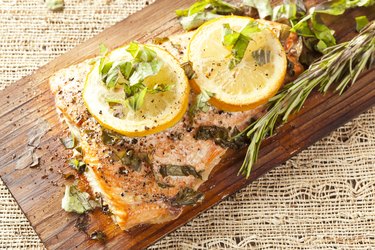
Most people who have gallstones don't even know it, according to U.S. News & World Report. These small pebble-like stones form in your gallbladder when there is an imbalance in the substances that make up bile. If you have gallstones, you should be able to eat seafood. However, if your gallstones are giving you problems, you may need to pay attention to the type of seafood you eat and how you prepare it.
Gallstones
Video of the Day
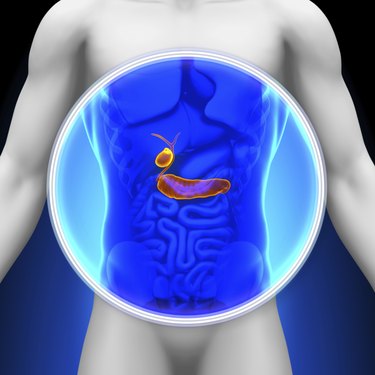
Your gallbladder is a small organ below your liver that collects bile, and stores and concentrates it. Bile is a thick substance your body needs to help you digest fat. Bile consists of cholesterol, bilirubin, protein, bile salts, water and some trace minerals. If your bile contains too much of any of these substances, particularly cholesterol, your bile is likely to crystallize and form stones. Gallstones affect about 10 percent of the population, but only cause serious issues in about 1 to 2 percent, according to U.S. News and World Report.
Video of the Day
Diet and Gallstones
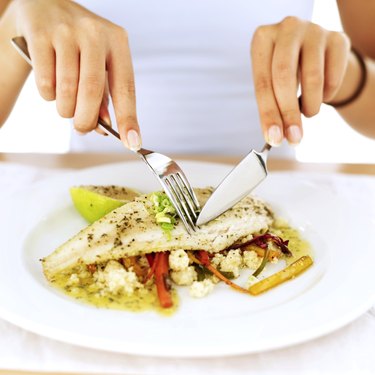
Making changes to your diet cannot prevent you from forming gallstones, according to the authors of "Krause's Food, Nutrition and Diet Therapy." But if your gallstones are causing pain and inflammation, you may need to limit the amount of fat in your diet to about 40 to 45 grams to prevent gallbladder contractions. Most seafood is low in fat -- a good choice when you need to limit your daily fat intake.
Shellfish
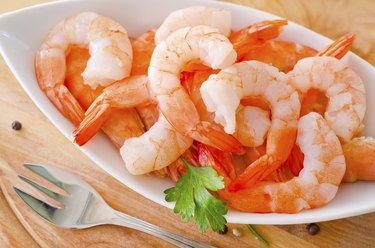
Shellfish includes shrimp, crab, lobster and scallops. Shellfish is naturally low in fat, making it a good choice in your diet for gallstones, whether you're experiencing problems or not. A 3-ounce portion of cooked lobster or shrimp contains less than 2 grams of total fat. If you need to limit your fat intake due to problems with gallstones, avoid fried shellfish and any fat such as clarified butter that may be served with it.
Fish
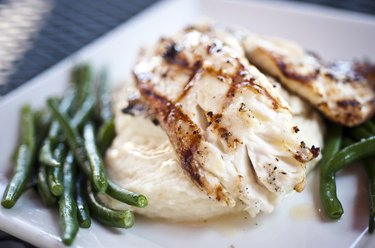
Fish also makes a healthy addition to your diet. But the amount of fat can vary depending on the type of fish. Very low-fat fish choices include cod, flounder, haddock, pollock and orange roughy. A 3-ounce cooked portion of each of these fish contains less than 2 grams of total fat. Fatty fish, which includes salmon, tuna and trout, contains 6 to 10 grams of fat per 3-ounce portion. If your gallstones are not causing problems, you should be able to eat all types of fish. However, if your gallstones are causing pain, you may need to avoid or limit fatty fish. Also avoid fried fish and any fat served with fish, such as butter or tartar sauce.